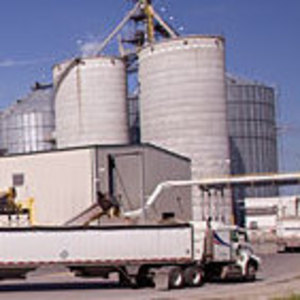Kan. ethanol plant to co-locate renewable diesel facility on-site

August 4, 2014
BY Ron Kotrba
East Kansas Agri-Energy LLC plans to integrate renewable diesel production at its ethanol plant in Garnett, Kan., using distillers corn oil from the ethanol process and other feedstocks, the company announced late July. WB Services is the integration and renewable diesel technology provider for the project. Construction on the 3 MMgy co-located renewable diesel plant is slated to begin soon and is expected to be completed in 12 to 14 months.
“This is about maximizing revenue, leveraging activities that we already do every day, and enhancing the value of products we already produce now,” said EKAE President and CEO Jeff Oestmann. “Adding renewable diesel capability aligns perfectly with our business strategy of diversifying our energy portfolio and creating additional enterprises that are sustainable on their own.”
“The main driver is to create greater value for our unit holders,” said EKAE Chairman Bill Pracht. “We'll be taking advantage of our experience and current facilities to create two biofuels out of one kernel of corn. Furthermore, we'll be adding value to the corn oil we already produce.”
Oestmann said that EKAE already has a receptive market for this new fuel. “We have positive relationships with customers and within the biofuels industry that have come to know EKAE as a reliable and trustworthy supplier,” he said. “By using corn distillers oil we produce as the primary feedstock, we will have quality control that will underscore our reputation for quality in the marketplace.”
“Sound management and fiscal responsibility have created a strong balance sheet for EKAE,” said EKAE board member Scott Burkdoll. “We are in an extremely advantageous position to establish market leadership quickly and profitably.”
“Our renewable diesel technology is commercially proven,” said Ron Beemiller, president and CEO of WB Services. “The process creates renewable diesel along with valuable coproducts including steam, fuel gas and denaturant that are integrated into the ethanol plant. It is an elegant solution that adds value while reducing the carbon intensity.”
High-value coproducts of the renewable diesel process include naphtha, which is a common component in gasoline and is used in ethanol production as a denaturant. Another coproduct is a fuel gas similar to pipeline natural gas, which will also be used in the ethanol process to reduce energy consumption.
Advertisement
Advertisement
Related Stories
The USDA significantly increased its estimate for 2025-’26 soybean oil use in biofuel production in its latest World Agricultural Supply and Demand Estimates report, released July 11. The outlook for soybean production was revised down.
U.S. fuel ethanol capacity fell slightly in April, while biodiesel and renewable diesel capacity held steady, according to data released by the U.S. EIA on June 30. Feedstock consumption was down when compared to the previous month.
The U.S. EPA on July 8 hosted virtual public hearing to gather input on the agency’s recently released proposed rule to set 2026 and 2027 RFS RVOs. Members of the biofuel industry were among those to offer testimony during the event.
The USDA’s Risk Management Agency is implementing multiple changes to the Camelina pilot insurance program for the 2026 and succeeding crop years. The changes will expand coverage options and provide greater flexibility for producers.
The USDA’s National Agricultural Statistics Service on June 30 released its annual Acreage report, estimating that 83.4 million acres of soybeans have been planted in the U.S. this year, down 4% when compared to 2024.
Upcoming Events










